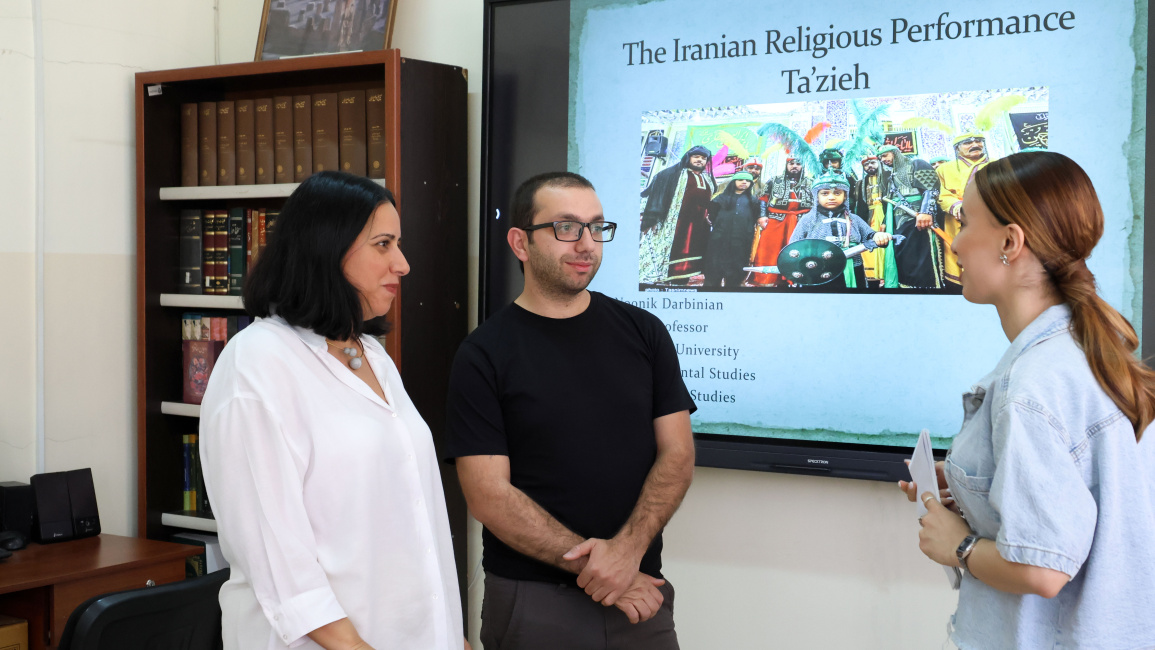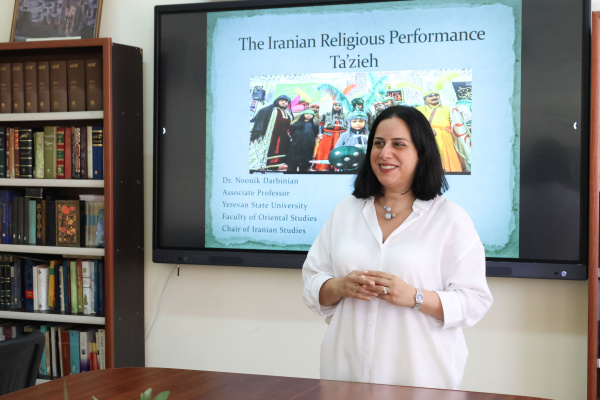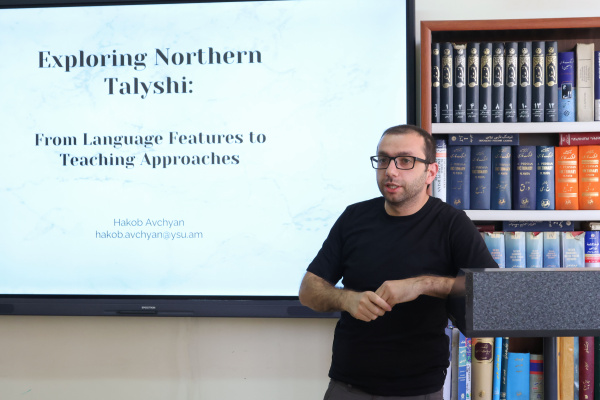June 16, 2025 | 14:57
Science
Education
International cooperation
YSU iranologists visit Copenhagen for academic and cultural exchange
Noonik Darbinian and Hakob Avchyan, lecturers in the Chair of Iranian Studies at YSU Faculty of Oriental Studies, recently visited the University of Copenhagen (Denmark) as part of the Erasmus+ program. During their weeklong stay, they delivered public lectures and discussed prospects for future collaboration. We spoke with them about the objectives, outcomes, and key details of their visit.

— Could you tell us about the visit? What was its purpose, and what kind of experience did you have in Copenhagen?
Noonik Darbinian: Our visit to the University of Copenhagen mainly had two goals: first, to teach Persian literature, and second, to deliver public lectures. Besides that, we also aimed to get acquainted with the university’s academic and administrative staff to lay the groundwork for future collaboration.
Hakob Avchyan: During the visit, I also taught Persian, although initially I had proposed teaching Talysh. However, the Danish side preferred Persian, so I delivered a lecture titled 'A study of Northern Talysh: From Linguistic Features to Teaching Approaches.' Even though the class was conducted in Persian, I managed to include elements of Talysh through vocabulary and conversational comparisons, which greatly interested the students.
— How did you organize the teaching? How did the students respond to your approaches?

Noonik Darbinian: At first, I suggested teaching 'Foundations of Iranian Culture and Ethics,' which is what I usually teach in YSU’s master’s studies. However, the Danish side requested that I teach Persian literature instead, as it was more urgent for them at that time, so I agreed. The students had eight hours a week dedicated to literature; we read works by Saadi and Hafez and analyzed literary techniques used in Iranian literature. We had quite lively thematic discussions.
— What impressions did you get of the university?
Hakob Avchyan: The University of Copenhagen is quite advanced, with innovative solutions and well-equipped technical resources. Interestingly, however, they don’t have an oriental studies faculty as such —the department covering that field operates under a different name and is smaller in terms of both students and lecturers. They were very interested in our teaching methods and were very open to cooperation proposals.
Noonik Darbinian: Despite their technical resources, from a content and teaching perspective, I believe YSU actually has certain advantages. Our students’ motivation and willingness to engage deeply are very high. They were quite surprised that students here come to class without large bags and asked where the notebooks and books were. We explained that learning materials are digitized and accessible electronically.
— Comparing the academic levels, what differences stand out?

Hakob Avchyan: For example, comparing students in the same major during the second semester of their first year at both universities, the Copenhagen students were reading quite simple texts, whereas at YSU, by this stage, students are already translating complex texts. They also have fewer class hours compared to us, where students have significantly more.
Noonik Darbinian: Of course, we would like YSU’s library to be as rich and diverse as the University of Copenhagen’s. Our library needs continuous updating with modern literature, especially Persian books, novels, and other educational materials relevant to our field. Considering our collaboration with Iran, this is simply necessary. However, I can proudly say that YSU has a lot to offer in terms of curriculum content, teaching approaches, and student engagement.
Visits like this serve as an effective foundation for further cooperation in educational programs and scientific research.

